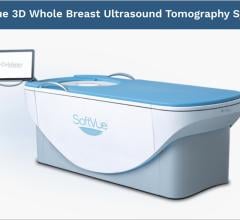
February 1, 2018 — Breast cancer patients may be at increased risk of cardiovascular diseases including heart failure and may benefit from a treatment approach that weighs the benefits of specific therapies against potential damage to the heart, according to a new scientific statement from the American Heart Association (AHA). The statement is published in the AHA journal Circulation.
The statement is an overview of what is currently known about risk factors common to both heart disease and breast cancer, the potential heart damage from some breast cancer treatments, and suggested strategies to prevent or minimize the damage. Breast cancer survivors, especially older women over the age of 65, are more likely to die from cardiovascular disease than breast cancer, underscoring the importance of effectively managing heart disease risk factors during and following cancer treatment.
“Any patient who is going to undergo breast cancer treatment, whether they have heart disease at the beginning or not, should be aware of the potential effects of the treatments on their heart,” said Laxmi Mehta, M.D., chair of the writing group for the new scientific statement. “This should not deter or scare patients from undergoing breast cancer treatment, but should allow them to make informed decisions with their doctor on the best cancer treatment for them.”
During cancer treatments, patients should pay attention not only to their breast health, but also to their general health, including their heart, said Mehta, who is director of the Women’s Cardiovascular Health Program and an associate professor of medicine at The Ohio State University in Columbus, Ohio.
For example, some cancer treatments, such as HER-2 targeted therapies, can cause weakening of the heart muscle, or heart failure. HER-2 is a specific type of breast cancer. In some cases, the reduction in heart function is temporary and cessation of the treatment and/or the addition of heart medicines can improve function. But in some breast cancer patients, heart failure can be permanent. Because of this, the early development of heart failure can signal a need to slow down and/or alter a patient’s breast cancer treatment because of the risk for worsening the condition or the development of permanent heart failure.
Some small studies suggest that administering common chemotherapy agents in new ways may reduce heart disease risks. Doxorubicin is a chemotherapy drug used in breast cancer therapy that can lead to the damage of heart cells. Studies have shown that when doxorubicin is administered slowly, rather than all at once, patients may have a lower risk of heart failure.
In addition, a drug called dexrazoxane that could reduce cell damage has recently been approved for patients with metastatic breast cancer who receive high doses of doxorubicin. More studies will need to be done to confirm whether the results of the smaller studies are seen in larger groups of patients.
Other treatments, such as radiation, can affect the heart arteries and cause the development of coronary artery disease or blockages. Some breast cancer treatment agents, such as anthracyclines, can result in abnormal heart rhythms that in some patients are benign but in others can lead to life-threatening heart rhythms. And, some treatments -- like antimetabolites -- can cause spasm of the heart arteries, which can cause chest pain symptoms but could lead to heart attacks as well.
Heart disease and breast cancer share a number of risk factors, including advanced age, poor diet, family history, physical inactivity and tobacco use. The fact that these diseases share some risk factors suggests that there are lifestyle choices, primarily diet and exercise, that could help decrease the risks of developing both diseases. Healthcare providers should monitor a woman’s heart health before, during and after breast cancer treatment.
Adherence to a number of ideal heart health behaviors or factors from the American Heart Association’s’ Life’s Simple 7 is associated with a trend towards a lower incidence of breast cancer, according to the association. Life’s Simple 7 includes being physically active, achieving and maintaining a healthy body weight, eating a healthy diet, avoiding tobacco, and maintaining healthy levels of blood pressure, cholesterol and blood sugar.
“Fortunately, with the advances in breast cancer treatment, there has been a growing number of survivors. However, during and after the treatment of breast cancer, having optimal control of heart disease risk factors is important, because older breast cancer survivors are more likely to die of heart disease than breast cancer,” Mehta said. “And that's why Life's Simple 7 is important for all patients with and without breast cancer.”
Co-authors on the statement are Karol E. Watson, M.D., Ph.D., vice-chair; Ana Barac, M.D., Ph.D.; Theresa M. Beckie, Ph.D.; Vera Bittner, M.D., M.S.P.H.; Salvador Cruz-Flores, M.D., M.P.H.; Susan F. Dent, M.D.; Lavanya Kondapalli, M.D.; Bonnie Ky, M.D.; Tochukwu Okwuosa, D.O.; Ileana L. Piña, M.D., M.P.H., FAHA; and Annabelle S. Volgman, M.D.; on behalf of the American Heart Association Cardiovascular Disease in Women and Special Populations Committee of the Council on Clinical Cardiology; Council on Cardiovascular and Stroke Nursing; and Council on Quality of Care and Outcomes Research. Author disclosures are on the manuscript.
Read the article "AHA Puts New Focus on Where Heart Disease and Breast Cancer Treatment Meet"
Watch the VIDEO: Linking Breast Cancer Treatment to Cardiac Issues
For more information: www.circ.ahajournals.org


 July 29, 2024
July 29, 2024 








